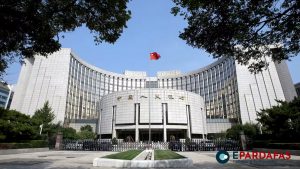
Foreign Investors Shy Away from China’s Real Estate Market, Shift Focus to Niche Strategies
Foreign investors are increasingly reluctant to invest in China’s troubled real estate market, with remaining players shifting towards niche strategies, particularly in environmentally friendly developments. Christine Li, head of research for APAC at real estate consultancy Knight Frank, highlighted concerns among U.S.-based real estate investors. “Five to seven years down the road, whether you can find a buyer to exit the Chinese market is a big question mark,” Li told.
In the first half of this year, cross-border deals into China’s commercial properties, including offices, industrials, hotels, retail, and apartments, totaled $3.3 billion, a 13% decline from the previous year, according to investment research group MSCI. Despite a 35% drop in deals, Japan led the Asia Pacific market with $3.7 billion in investments. Singaporean investors, less impacted by geopolitical tensions and with extensive experience in China, remained the top overseas buyers, excluding Hong Kong, investing about 6.9 billion yuan ($1 billion) in the first six months of 2024. In contrast, U.S. investors invested a mere 600 million yuan, less than a tenth of Singapore’s total.
Though Singaporean capital saw an 80% increase in the first half of 2024 from the previous year, it was still only a third of its peak in the second half of 2019 when 22 billion yuan was invested in the mainland market. This downward trend reflects growing concerns even among long-time optimists about China’s property market.
China’s real estate sector has struggled since the government imposed borrowing restrictions on property developers in 2020. Evergrande, once the country’s largest developer, is now in liquidation, and many other private developers face legal challenges. The collapse of the sector has severely impacted the confidence of Chinese families who had invested heavily in property.
In the first six months of 2024, China’s overall property investments fell by 10.1% year-on-year to 525.3 trillion yuan. Singapore’s sovereign wealth fund GIC, a consistent top buyer in China’s property market, has warned that China has “come to the end of its growth model,” which relied heavily on real estate development. This sentiment was echoed by GIC Chief Investment Officer Jeffrey Jaensubhakij, who noted that the long-term potential of Chinese property investments has been “suddenly curtailed.”
Facing structural challenges, some investors are redirecting their focus within China. Keppel Corp., backed by Temasek Holdings, has been de-risking its portfolio from China over the past few years. During an earnings call on August 1, Keppel CEO Loh Chin Hua announced the sale of its land bank in China, worth about 3 billion Singapore dollars ($2.2 billion), resulting in around “a billion dollars in profit” over recent years. Despite efforts to monetize its exposure, Keppel reported that overall opportunities in China remain challenging compared to other markets like Singapore and Vietnam, Nikkei Asia reported..
Keppel is now concentrating on real estate services such as consulting and development to make older buildings more environmentally sustainable. In October, Keppel closed a 1.6 billion yuan China-focused investment fund for sustainable urban renewal programs, focusing on retrofitting and repurposing existing buildings. Loh explained that the company’s new strategy for the “complex” Chinese market, which it entered 30 years ago, now focuses on areas with growing demand, such as sustainable buildings, energy transitions, and data centers.
Xavier Lee, an equity analyst at Morningstar, noted that Singapore real estate companies with committed projects in China will continue their investments to completion but are not expected to expand aggressively due to the challenging market environment. Lee highlighted that Singapore REITs with commercial properties in China are currently focused on maintaining occupancy rates and accepting lower rents for higher occupancy.
Despite these difficult conditions, some see current market prices as an opportunity. Principal Financial Group, which formed a joint venture with China Construction Bank in March, is focusing on acquiring logistics centers in China’s Yangtze River Delta and Pearl River Delta. Thomas Cheong, Asia president of Principal Financial Group, mentioned that raising funds from family offices and trusts is feasible given the right quality assets. He observed that sellers are becoming more realistic, anticipating rental declines as businesses cut costs.
While the Chinese market faces numerous challenges, niche strategies such as environmentally sustainable developments and logistics centers offer potential avenues for investors to navigate the complexities and uncertainties of the real estate sector.













Comments